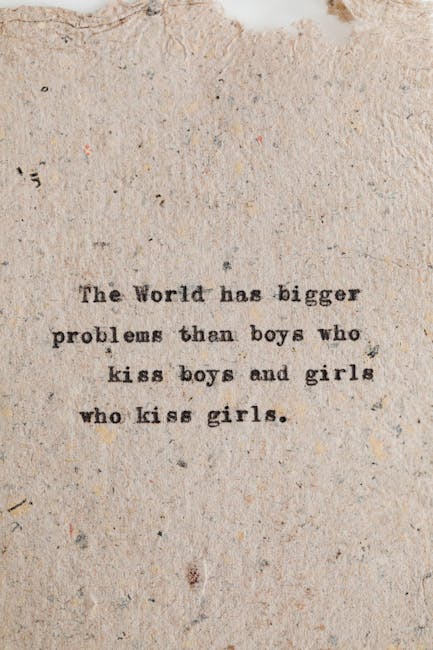Honesty is the cornerstone of any genuine friendship. Without it, relationships can feel hollow, like a house built on sand—unstable and prone to collapse. But why is honesty so vital in friendships, and how does it shape the way we connect with others? Let’s dive into the heart of the matter and explore how being truthful can transform friendships into lifelong bonds worth cherishing.
Key Takeaways
- Honesty builds trust, the foundation of any strong friendship.
- Dishonesty can lead to misunderstandings and erode relationships.
- Truthfulness fosters emotional intimacy and deeper connections.
- Being honest promotes personal growth and authenticity in friendships.
- Practicing honesty requires balancing transparency with kindness.
The Role of Honesty in Building Trust
How honesty fosters trust in friendships
Trust as the foundation of a strong bond
Trust is like the glue that holds friendships together. Without it, even the most fun or exciting relationships can feel empty. When friends are honest with each other, they create a safe space where vulnerability is welcomed. This trust allows people to share their thoughts, fears, and dreams without fear of judgment.
Imagine telling your best friend about a mistake you made, and instead of ridicule, they offer understanding. That’s the power of trust built on honesty—it strengthens the bond and makes the friendship feel unshakable.
The impact of consistent honesty on trust
Consistency is key. Being honest once or twice isn’t enough; it’s the pattern of truthfulness that builds trust over time. When friends know they can rely on each other for the truth, even when it’s uncomfortable, it deepens their connection.
For example, if a friend asks for your opinion on something important, like a life decision, giving them an honest answer—even if it’s not what they want to hear—shows you care about their well-being. Over time, this kind of honesty becomes the bedrock of a solid friendship.
Consequences of dishonesty on trust
How lies can lead to misunderstandings
Dishonesty, even in small doses, can create cracks in a friendship. A single lie can snowball into a web of misunderstandings. For instance, if you tell a friend you’re “fine” when you’re not, they might assume you don’t trust them enough to share your struggles.
These small untruths can lead to bigger issues, like feeling disconnected or misunderstood. Over time, the friendship may start to feel more like a performance than a genuine connection.
The erosion of trust through concealed truths
Hiding the truth is just as damaging as outright lying. Concealing important information can make a friend feel betrayed when they eventually find out. It’s like pulling a thread from a sweater—eventually, the whole thing unravels.
Being upfront, even when it’s hard, prevents these situations. It shows that you value the friendship enough to be real, even when it’s uncomfortable.

Honesty as a Tool for Emotional Support
Supporting friends effectively through honesty
Providing truthful feedback during tough times
Honesty isn’t just about sharing facts; it’s also about offering support. When a friend is going through a tough time, being truthful can help them see things more clearly.
For example, if a friend is stuck in a toxic relationship, gently pointing out the red flags can be a wake-up call. While it might be hard to say, your honesty could save them from further heartache.
Encouraging open communication for problem-solving
Open communication is the lifeline of any friendship. When friends are honest about their feelings, they can work through problems together. Instead of bottling up frustrations, they can address issues head-on and find solutions that strengthen their bond.
This kind of honesty fosters a sense of teamwork. It shows that both parties are invested in making the friendship work, even when things get tough.
The importance of honesty in fostering deeper connections
How honesty strengthens emotional intimacy
Emotional intimacy thrives on honesty. Sharing your true feelings, even the messy or complicated ones, creates a deeper connection. It’s like peeling back the layers of an onion—each layer reveals more of who you are, and that vulnerability brings you closer.
Building meaningful relationships through transparency
Transparency is the secret ingredient to meaningful friendships. When you’re open about your thoughts and feelings, it encourages your friends to do the same. This mutual honesty creates a bond that’s hard to break.
For more tips on building meaningful connections, check out this guide on fostering relationships with loved ones.

Personal Growth Through Honesty in Friendships
How honesty improves self-image and authenticity
The role of honesty in self-perception
Being honest with your friends helps you be honest with yourself. When you practice truthfulness, you start to see yourself more clearly. This self-awareness can boost your confidence and help you grow as a person.
Encouraging authenticity in relationships
Authenticity is contagious. When you’re honest about who you are, it encourages your friends to do the same. This creates a circle of trust and authenticity that makes the friendship feel genuine and fulfilling.
Promoting mutual growth in friendships
Helping friends grow by being truthful
Honesty isn’t just about pointing out flaws; it’s also about celebrating strengths. By being truthful, you can help your friends see their potential and encourage them to grow.
Attracting like-minded individuals through shared values
When you’re honest, you naturally attract people who share your values. These like-minded friends are more likely to stick around because they appreciate your authenticity.
For more insights on nurturing healthy relationships, check out this article on self-care and relationships.

The Negative Impact of Dishonesty in Friendships
How lying changes the dynamic of a friendship
The precedent set by dishonesty
Once dishonesty enters a friendship, it sets a dangerous precedent. It can make both parties question the authenticity of their bond.
Challenges in regaining trust after lying
Rebuilding trust after a lie is like trying to glue a broken vase—it’s possible, but the cracks will always be there. That’s why it’s better to be honest from the start.
The harm caused by concealing the truth
Damage to the foundation of a friendship
Concealing the truth can weaken the foundation of a friendship. It creates a barrier that prevents genuine connection.
Emotional hurt caused by lack of transparency
When friends hide things from each other, it can lead to feelings of betrayal and emotional pain. This hurt can linger, making it hard to repair the relationship.

Practical Ways to Practice Honesty in Friendships
Maintaining transparency in communication
Avoiding lies by omission
Sometimes, not saying something can be just as harmful as lying. Being transparent means sharing important information, even when it’s uncomfortable.
Tackling important issues head-on
Avoiding difficult conversations only makes problems worse. Tackling issues head-on shows that you value the friendship enough to address them.
Demonstrating honesty through actions
Acting in your friend’s best interests
Being honest isn’t just about words; it’s also about actions. Acting in your friend’s best interests shows that you care about their happiness.
Keeping promises to reinforce trust
Promises are sacred in friendships. Keeping them reinforces trust and shows that you’re reliable.
Balancing honesty with kindness
Recognizing when full honesty may not be necessary
Sometimes, brutal honesty can do more harm than good. Knowing when to hold back is just as important as knowing when to speak up.
Approaching sensitive topics with care and empathy
When discussing sensitive topics, approach them with kindness and empathy. This ensures that your honesty strengthens the friendship rather than damaging it.
For more on the benefits of kindness, check out this article on practicing kindness.
Honesty is the heartbeat of any true friendship. It builds trust, fosters emotional intimacy, and promotes personal growth. While being truthful isn’t always easy, the rewards are worth it. By practicing honesty with kindness and empathy, you can create friendships that stand the test of time. After all, isn’t that what we all want—a bond that feels real, unbreakable, and full of love?
For more tips on strengthening your friendships, explore this guide on building strong relationships.
FAQ: Why Honesty is the Heartbeat of True Friendships
Why is honesty important in friendships?
Honesty builds trust, which is the foundation of any meaningful friendship. Without honesty, misunderstandings and doubts can arise, weakening the bond between friends over time.
How does honesty strengthen trust in a friendship?
When friends are honest, they show they value and respect each other. This openness fosters trust, as both parties feel safe to share their thoughts and emotions without fear of judgment or betrayal.
Can a friendship survive without honesty?
While a friendship may survive temporarily without honesty, it often becomes fragile and superficial. Over time, dishonesty can lead to resentment, mistrust, and ultimately the breakdown of the relationship.
What are some examples of honesty in a friendship?
Examples include admitting mistakes, giving genuine feedback, sharing true feelings, and being upfront about intentions. These actions demonstrate care and authenticity in the relationship.
How can I practice honesty without hurting my friend’s feelings?
Honesty should be paired with kindness. Use tactful language, choose the right time to talk, and focus on constructive feedback rather than criticism. This ensures your honesty is received positively.
What are the risks of dishonesty in friendships?
Dishonesty can lead to misunderstandings, loss of trust, and emotional distance. Over time, it can erode the foundation of the friendship, making it difficult to repair.
How can I encourage honesty in my friendships?
Lead by example—be honest and open yourself. Create a safe space for your friends to share their thoughts without fear of judgment. Show appreciation when they are truthful with you.
What should I do if my friend is dishonest with me?
Address the issue calmly and directly. Share how their dishonesty made you feel and give them a chance to explain. Open communication can help resolve misunderstandings and rebuild trust.
Can being too honest harm a friendship?
Excessive honesty without sensitivity can come across as harsh or critical. It’s important to balance honesty with empathy, ensuring your words are constructive and considerate of your friend’s feelings.
How does honesty contribute to long-lasting friendships?
Honesty fosters trust, understanding, and mutual respect—all essential elements of a lasting friendship. It creates a strong bond where both friends feel valued and supported, even through challenges.



